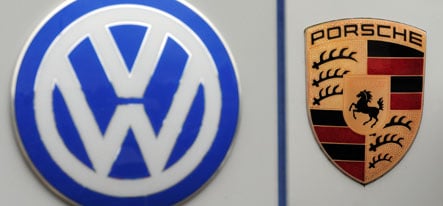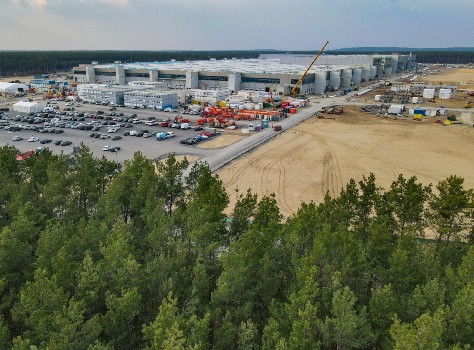After weeks of “intensive talks” between the boards of both companies, Porsche’s family of owners “argued for the creation of an integrated car manufacturing group,” Porsche said in a statement.
The merged group would have 10 separate auto brands under one management in an “integrative leading company,” said the statement, issued after a meeting of the two firms and Porsche’s owners in Salzburg, Austria.
“On this basis both companies Volkswagen and Porsche (will now) intensify the talks in a joint working group,” it added. “It is the aim to develop a corresponding basis for decision-making on the future structure of the common group within the next four weeks.”
Volkswagen issued a separate statement hailing the decision of the Porsche and Piech families, owners of the Porsche group, to forge a merger. The announcement came amid major shifts in the world auto industry brought on by the financial and economic crisis that has hit demand and crippled many manufacturers.
US car giant Chrysler filed for bankruptcy last week, opening the way for Italian champion Fiat to take a stake in it. Fiat has also been linked to a potential takeover of Opel, the Germany-based arm of US company General Motors.
Stuttgart-based Porsche already holds a majority stake in Volkswagen (VW) and made an audacious takeover bid for it three-and-a-half years ago. Press reports had said last week that VW was considering a counter bid for Porsche, which is €9 billion ($11 billion) in debt. As the largest carmaker in Europe, VW is also by far the bigger company.
The Porsche parent group owns a little more than 50 percent of VW after having boosted its stake in January, and had aimed to raise its stake to 75 percent until it found itself battered by the global economic slowdown.
The German state of Lower Saxony, which has a one-fifth stake in Volkswagen, will take part in the new working group as well as employees’ representatives, the Porsche statement said.
Long common history
The two carmakers have a shared family history that stretches back decades. When Nazi leader Adolf Hitler hatched plans for a popular “people’s car,” or Volkswagen in German, he turned to his Austrian compatriot Ferdinand Porsche.
Porsche set up shop in Germany and designed the iconic Beetle, the first and best-known Volkswagen model.
When Volkswagen was taken over by the Allies after the war and nationalised, Ferdinand Porsche set up his own company in the southern city of Stuttgart.
For the next several decades Porsche and Volkswagen, based in the northern city of Wolfsburg, went their separate ways. But following the arrival of Ferdiand Piech to Volkswagen’s management, the companies began to slowly move towards one another.
The grandson of Ferdinand Porsche, and co-inheritor of the luxury automaker, Piech began his career at Porsche before moving to Volkwsagen’s Audi marque, then Volkswagen itself.
Piech climbed the management ladder to become the head of the Volkswagen group from 1993 to 2002.
Widely respected in Germany – where he is viewed as the patriarch of the auto industry – Piech remains on VW’s supervisory board, all the while one of the main shareholders in the family holding company which controls Porsche.
In 2005, the destinies of the two companies began to approach as Porsche began to amass a stake in Europe’s top automaker.



 Please whitelist us to continue reading.
Please whitelist us to continue reading.
Member comments